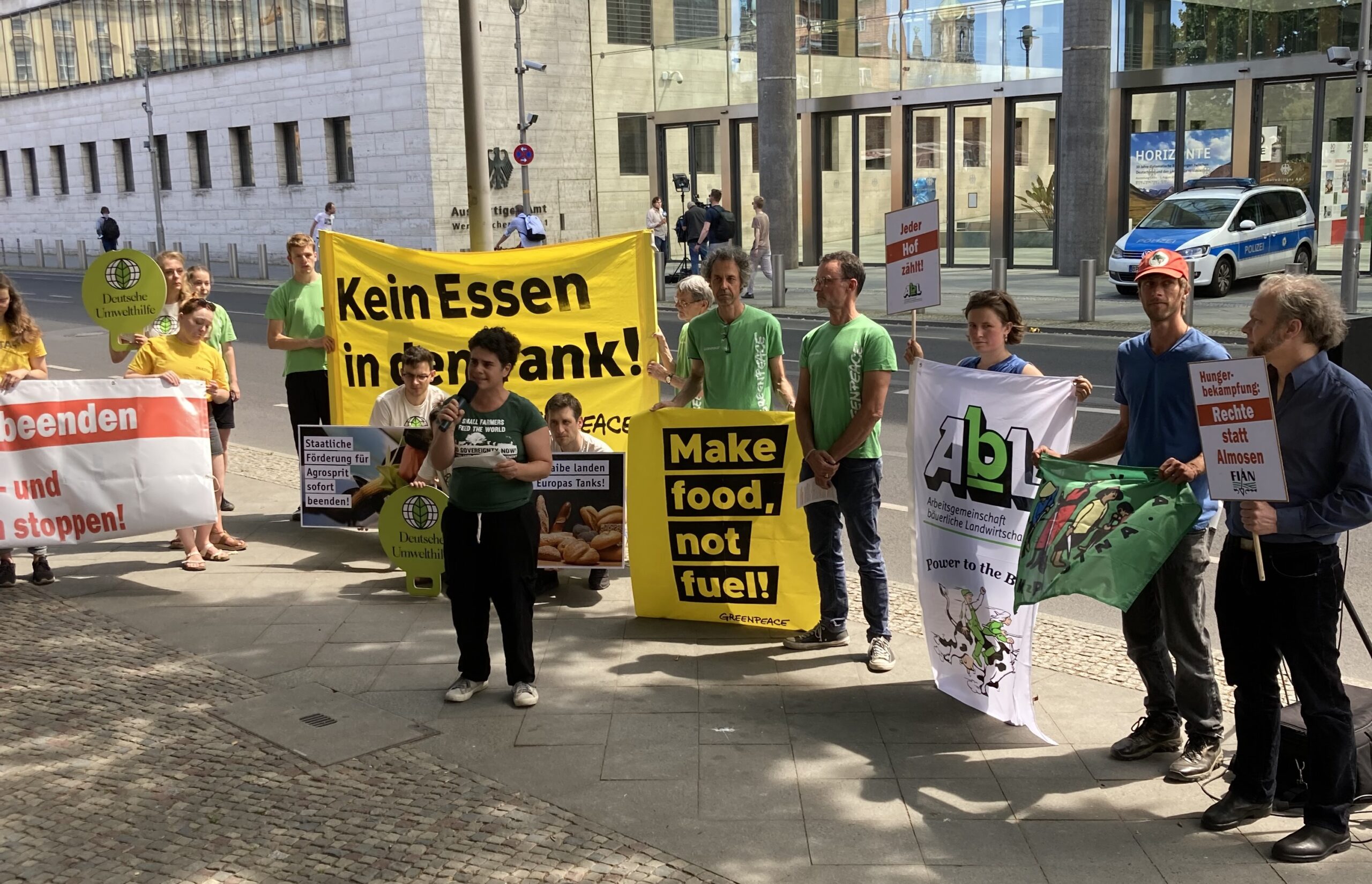G7 ignores real solutions to tackle global hunger, pushes Agribusiness interests again

Before the G7 meeting, which began on Sunday in Schloss Elmau, the German government organized the conference “Uniting for Food Security” last Friday, June 24. This conference was an attempt to legitimize the Global Alliance for Food Security (GAFS), recently created with its G7 partners, multilateral development banks and other actors convened to discuss joint actions against the food crisis.
Alerted about the organization of this event, AbL, the German member of La Via Campesina (LVC) and allies gathered outside the conference, calling for a coherent change of course in the global trade of food and agricultural products to ensure food sovereignty and create the conditions to eradicate global hunger. They criticized the measures proposed to strengthen financial commitments between the countries most affected by the food crisis and the international financial institutions.
For Paula Gioia, farmer and ad hoc member of the AbL Executive Committee, the conference’s conclusions ignore real grassroots solutions to tackle hunger. “There is an inherent conflict of interest when multilateral development banks offer solutions to the food crisis”, Gioia said. “We cannot solve hunger by injecting more conditional loans into net food-importing countries, trapping them in a cycle of debt. Instead, a framework for International Trade based on principles of solidarity and food sovereignty that adheres to International Human Rights instruments such as the UN Declaration on Peasants’ Rights is urgently needed.”
The initiatives reported at the conference on Friday suggest the need to transform agriculture, leaving no one behind. However, those who dominated the discussions just repeated the same old trope of increasing market access, lowering tariffs, keeping exports open and persisting with WTO’s highly unequal and problematic trade rules.
For Tyler Short, a U.S. farmer and board member of Family Farm Defenders, these two goals – leaving no one behind and maintaining the current world food and agricultural trade order – are incompatible. The creation of the WTO was instrumental in reducing the size of food stocks held by public institutions and creating an export-oriented production model with devastating consequences for rural economies and peoples’ food sovereignty.
The commitments adopted by this conference combine the common goal of transforming food systems with contradictory measures that limit it. For example, it fails to combat dependence on pesticides and fossil fertilizers in the context of rising prices and reinforces it. “Instead of serving corporate interests in the crisis, policy decisions are needed to achieve resilient food systems and food sovereignty,” said Gioia.
Tyler and Gioia also pointed out the contradiction between the Berlin conference chair’s call to strengthen the Committee on World Food Security (CFS) and the creation of the Global Alliance for Food Security. The move to create a Global Partnership undermines the work done inside the CFS thus far and the reforms it underwent over the years. CFS has a clear mandate and normative role focused on the right to food. Through CSIPM1, it offers a particular space for civil society and indigenous peoples as participants. The Global Partnership for Food Security, on the other hand, has the G7 and the World Bank as its core actors!
“We need agrarian reform and a real transformation that is not only aimed at sustainability. We demand food sovereignty and that the UN Declaration of the Rights of Peasants becomes a legally binding instrument in this moment of global food crisis”. Tyler added.
1CSIPM is the Civil Society and Indigenous Peoples’ Mechanism. It is a space within the CFS for civil society actors and social movements and Indigenous Peoples to articulate their realities, inputs and concerns.
This post is also available in Français.
